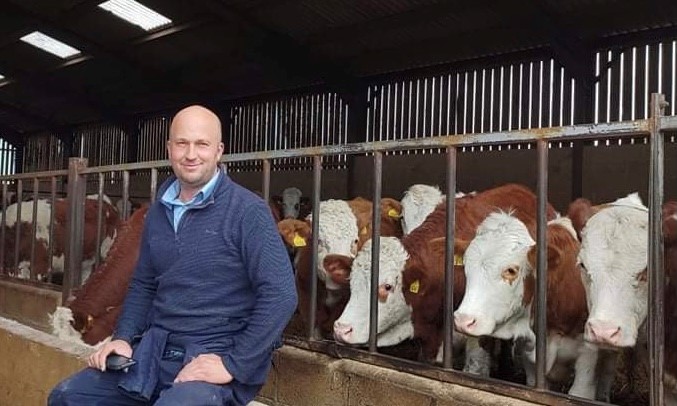Horizon blog: Time to focus on the factors in my control
Friday, 5 November 2021
As we publish new analysis of the trade deal between the UK and Australia, beef and lamb farmer James Taylor joins us for a guest blog. Here he reveals his thoughts on how farmers and wider industry can take control and face up to the significant challenges posed by the current political and social operating environment.
Bradley Walsh has a natural humour and banter with contestants on The Chase that I really enjoy. On cold winter tea-times I like to get inside, put the kettle on and try and convince myself that if I ever found myself on the show, I’d be able to guess enough answers to outrun the Chaser. I was just settling down to watch one such episode in early January to be greeted by AHDB’s ‘Eat Balanced’ advert. I hope you saw it; an upbeat and positive message about the sustainability of meat and dairy production in the UK. I found it so refreshing to be on the front foot, addressing misinformation about the impact of red meat consumption and reassuring consumers that meat and dairy have a role in a healthy, balanced diet.
Engaging with local consumers ourselves can have just as much impact as a TV advert and has probably never been so important given the changes coming our way. To face any one of BPS withdrawal, trade liberalisation or the current clamour of (often inaccurate) negative environmental messages about red meat consumption would be regarded as a significant challenge in normal times. To face all three at once feels like a bad joke and, at times, rather overwhelming. Indeed, the loss of subsidies and future trade deals were found to be major stress factors in RABI’s recent mental health survey. If, like me, you struggle with anxiety, you may have found that focusing on the factors we can control, and not thinking too far ahead, can help.
So when I read and reflected on AHDB’s report on the impact of a UK-Australia free trade agreement on UK agriculture I conclude that the factors I can control and influence in the here and now have to be my focus.
It’s hard to find much in this report that can be categorised as good news from the perspective of the British beef and lamb producer. Although Australian sheep meat exports are generally slightly higher in cost than UK imported products, the analysis shows that typical Australian farms do have considerable cost of production advantages, and the graph on page 27 shows that this is particularly the case for suckler herds where UK costs are typically twice that of Aussie counterparts; no wonder the average UK suckler producer relies on BPS to make a profit. The scale of production is obviously much larger in comparison to the UK, with the average Australian beef unit finishing about 27,000 head of cattle per annum, for example. While in a stable world the trade deal’s impact will be relatively modest in terms of increased beef and lamb imports, we are now vulnerable to any change in Australia’s relationship with China, which would see increased trade flows elsewhere.

If this is an example of the shape of future trade deals with other countries, the take-home message for me is that we have to emphasise our competitive advantage in terms of environment and quality in order to build consumer loyalty, as competing on price alone will be difficult.
Like many of us in our industry I enjoy trying to connect consumers to the story of their food, whether through school visits, open days, social media or the occasional local press article. Visitors and readers are invariably keen to engage and debate. Getting ever closer to the local consumer, growing our own protein, spreading costs over multiple enterprises and continuing to integrate ruminant production into an arable rotation to build soil organic matter and reduce the fertiliser bill will continue to be our focus at Broughton Grounds. Thanks largely to my Father building relationships with customers through an egg round in local villages we have found our recent step into the world of selling boxed-beef quite successful. Obviously we all operate in different contexts and different scales but focusing on the immediate factors we can influence is surely the place to start as we gear up for the challenges ahead. Do take advantage of AHDB’s free Farm Business Review and together lets build on the success of the ongoing Eat Balanced campaign to keep the UK consumer engaged and informed. And if you ever see me on The Chase, wish me luck …
Like the blog? You'll love our podcasts! Listen and subscribe today


